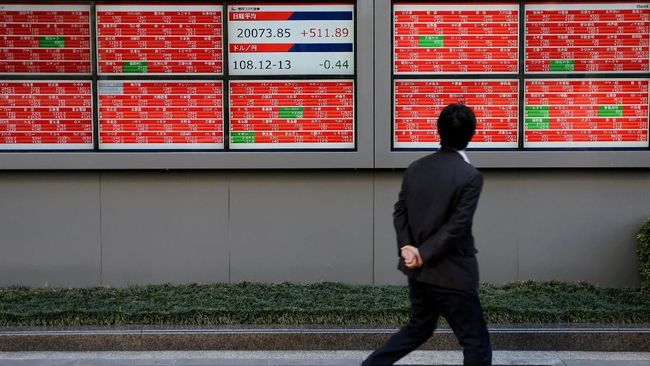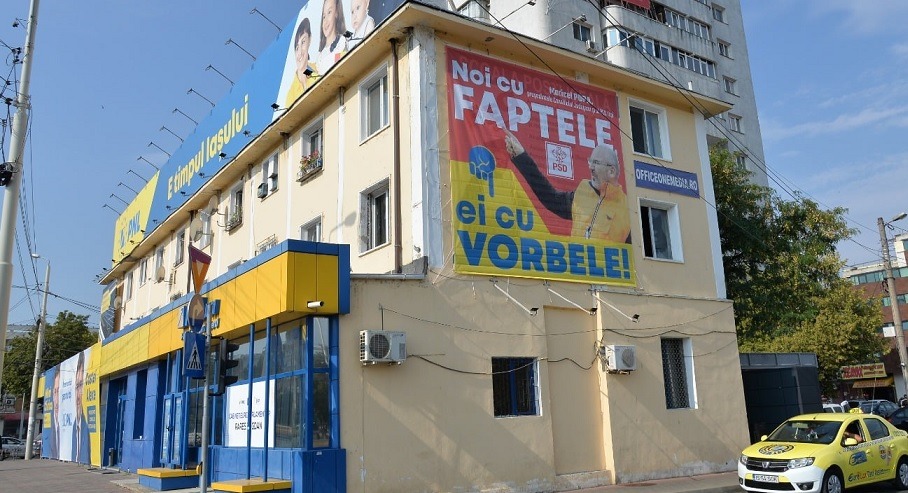Jakarta, CNBC Indonesia – The majority of Asian bourses opened lower on Tuesday (14/12/2021), following the US (US) stock market’s reversal towards the correction zone on Monday (13/12/2021) and investors continuing to monitor the latest developments from the coronavirus (Covid). -19) Omicron variant.
Japan’s Nikkei Index opened 0.34% lower, Hong Kong’s Hang Seng fell 0.94%, China’s Shanghai Composite fell 0.37%, and South Korea’s KOSPI depreciated 0.64%.
Meanwhile, Singapore’s Straits Times index opened slightly lower by 0.06%. However, 30 minutes after opening, the benchmark stock index of the Lion Country edged up 0.03% and tends to be traded flat.
Investor concerns re-emerged after less encouraging news came from the UK, where the local government on Monday (13/12/2021) noted that one Covid-19 patient was infected with the Omicron variant and was reported to have died.
British Prime Minister (PM), Boris Johnson, confirmed that one of the Covid-19 patients had contracted the Omicron variant and was reported to have died.
“Unfortunately yes, Omicron caused hospitalization and unfortunately again one patient has been confirmed to have died from infection with Omicron,” Johnson told reporters during a visit to a vaccination clinic near Paddington, London, according to reports. Sky News.
In addition to that from China, the local government reported the first case of the Omicron variant of Covid-19 in its country on Monday, as reported by Reuters and local media.
The first Omicron infection in Panda Country was indicated by: imported case namely from foreign tourists who arrived in Tianjin city from abroad on December 9. Currently, the patient is being treated and isolated at a local hospital.
On the other hand, the University of Oxford published the results of its research on Monday, which showed that two doses of the Oxford-AstraZeneca or Pfizer-BioNTech Covid-19 vaccines were substantially less effective in warding off Omicron than the previous Covid19 variants.
The Oxford University study noted that some vaccine recipients “failed to neutralize” the virus at all.
Meanwhile, Asian stock markets tend to follow the movement of US stock markets, Wall Street which closed reversed towards the red zone on Monday’s trading.
The Dow Jones Industrial Average (DJIA) closed down 0.89% to 35,650.949, the S&P 500 shed 0.91% to 4,669.14, and the Nasdaq Composite fell 1.39% to 15,413.28.
The correction occurred after US airline stocks fell, after the US recorded 800,000 people died from Covid-19 last Sunday (12/12/2021). Boeing shares plunged 3.7%, American Airlines dropped 4.9%, and Delta Air Lines slid 3.4%.
On the other hand, investors are also still digesting the headline inflation data which is heating up again. Uncle Sam’s country’s inflation from the consumer sector (Consumer Price Index/CPI) in the November 2021 period released last Friday (10/12/2021) jumped to 6.8% on an annual basis (year-on-year/yoy).
The soaring US CPI last month was the biggest jump since 1982. The figure was also slightly higher than economists in a Dow Jones poll forecast for a 6.7% increase.
Investors tend to retain their risk appetite today, ahead of the meeting of the Federal Open Market Committee (FOMC) of the US central bank (Federal Reserve / The Fed) which was held for two days, from Tuesday (14/12/2021) today to Wednesday (15/12/2021) US time.
At this time’s FOMC meeting, policymakers are expected to discuss accelerating the program to reduce bond purchases or… tapering.
Fed Chair Jerome Powell and his colleagues recently suggested the central bank could end its $120 billion monthly bond-buying program ahead of its current schedule of June 2022.
Speed up the time limit for tapering can also advance the central bank’s policy to raise the benchmark interest rate. This is also a concern for investors this week.
CNBC INDONESIA RESEARCH TEAM
(chd / chd)
– .


